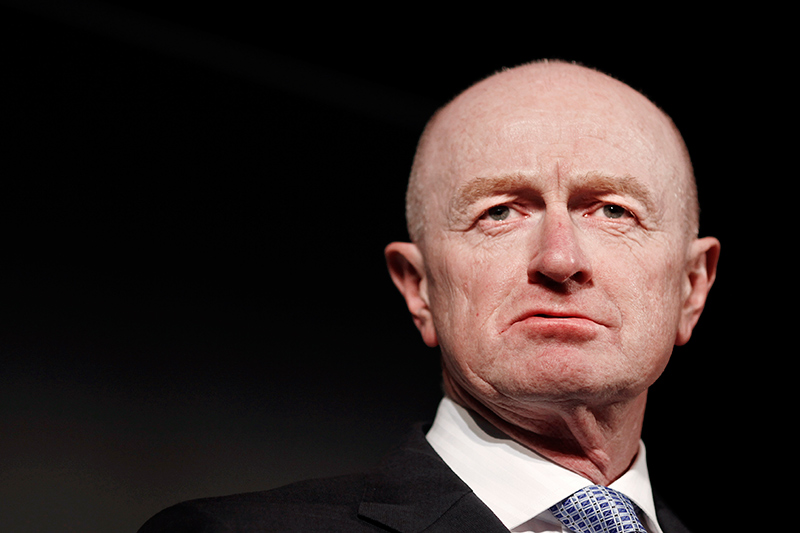Investing.com - The Reserve Bank of Australia kept its benchmark interest rate unchanged at a record low in April, it said on Tuesday.
In a statement, the RBA said it was leaving its benchmark interest rate unchanged at 3%, in line with expectations.
The central bank lowered rates by 25 basis points to 3%, the lowest since the 2009 global financial crisis, following its last meeting in December. Since November 2011, the RBA has slashed its cash rate by 1.75%.
In its accompanying rate statement, RBA Governor Glenn Stevens said, “labor costs remain contained and businesses are focusing on lifting efficiency. These trends should help to keep inflation low, even as the effects on prices of the earlier exchange rate appreciation wane."
“The Board's view is that with inflation likely to be consistent with the target, and with growth likely to be a little below trend over the coming year, an accommodative stance of monetary policy is appropriate.”
Following the decision, the Australian dollar was higher against its U.S. counterpart, with AUD/USD rising 0.34% to trade at 1.0457.
Meanwhile, Asian stock markets were mixed, with Australia’s ASX/200 Index adding 0.4%, Japan’s Nikkei 225 Index shed 1%, while Hong Kong's Hang Seng Index was flat.
In a statement, the RBA said it was leaving its benchmark interest rate unchanged at 3%, in line with expectations.
The central bank lowered rates by 25 basis points to 3%, the lowest since the 2009 global financial crisis, following its last meeting in December. Since November 2011, the RBA has slashed its cash rate by 1.75%.
In its accompanying rate statement, RBA Governor Glenn Stevens said, “labor costs remain contained and businesses are focusing on lifting efficiency. These trends should help to keep inflation low, even as the effects on prices of the earlier exchange rate appreciation wane."
“The Board's view is that with inflation likely to be consistent with the target, and with growth likely to be a little below trend over the coming year, an accommodative stance of monetary policy is appropriate.”
Following the decision, the Australian dollar was higher against its U.S. counterpart, with AUD/USD rising 0.34% to trade at 1.0457.
Meanwhile, Asian stock markets were mixed, with Australia’s ASX/200 Index adding 0.4%, Japan’s Nikkei 225 Index shed 1%, while Hong Kong's Hang Seng Index was flat.
